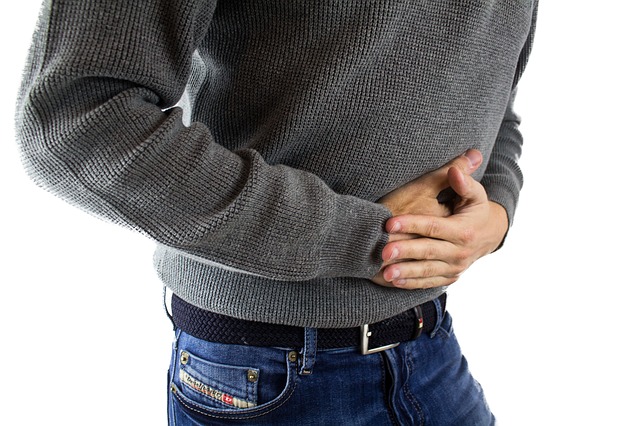
There is a universal law: everything changes. We can see it now around us. Although the leaves on the trees have not browned yet, it feels like the end of a cycle. It’s the end of summer, it’s late summer. I would like to tell you about this stage and how it influences our energy, metabolism, food and emotions.
THE DOJOS ACCORDING TO EASTERN TRADITION
In the East there are a series of stages within the four season calendar. They are known as dojos, lasting approximately 18 days and they fall in between the seasons. Despite being considered transition periods, in the East they are considered seasons in their own right. The most important ones are located between summer and autumn, and between winter and spring. This makes sense because we are more prone to health problems at these times of the year. Not surprisingly, it is during these transition periods that fasting is traditionally recommended. Dojos vary according to the calendar of the geographical area. Everywhere small changes occur which give away what is to come: a bird that starts to sing, a blooming tree, etc. In my childhood I was fascinated by how early in January an almond tree in a corner on my way to school actually bloomed.
In the same way, we can perceive the change between summer and autumn from an energetic point of view. Days get shorter and we feel how nature begins to gather and prepare for autumn.
THE SOIL ELEMENT
As we saw in the theory of the five transformations, there is this fifth season (soil) that was included between summer and autumn. It was represented at the centre, as it was perceived that energy withdrew to the centre in between seasons. it was Only later removed from the centre and located between fire and metal, to form the cycle of the five transformations we are familiar with today.
STOMACH, SPLEEN, PANCREAS
At this time these energetically related organs become relevant. They are influenced by an energy of calmness and stability and the presence of good quality (complex) carbohydrates in the diet. At this stage the function of the digestive tract is essential. Thus, it should not be surprising that this element is called soil and plays a key role in the making of our blood and health.
Francisco Varatojo used to compare soil and the digestive tract to a tree. A tree needs nutritious soil with a balanced biome from which to extract nutrients. Likewise, the digestive tract is the soil that makes nutrients available for our body. To be fertile, the soil must have a strong environment, capable of generating life.
Soil is stimulated by yellow, brown and orange colours, as well as the sweet taste. Once again, seasonal foods will be our best allies: carrot, squash, onion, cabbage, etc.
Immune system problems are related to soil problems. A fully functioning immune system is the result of a healthy stomach, spleen and pancreas. These three organs are vital to the quality of our blood (e.g. the spleen stores blood and minerals to be used when needed).
HOW TO CREATE A HEALTHY GUT?
Chewing with gratitude and thankfulness. Put the spoon down while chewing until all the sweetness has come out. Chewing promotes introspection and emulates the ploughing of the soil. Chewing makes nutrients available for absorption, especially carbohydrates. The function of liver and pancreatic juices break down the nutrients, that is, they plough the soil adequately. This bath makes the nutrients available for the digestive system.
RELATED EMOTIONS
Ancient therapies regard the physical, mental and emotional aspects as an inseparable unit. An imbalance in one of them is mirrored by the others. That is why it is very useful to look at patients closely in order to see what psychological and emotional symptoms they manifest, as all this can provide valuable information for a successful diagnosis.
POSITIVE: When the soil transformation and its related organs (stomach, spleen and pancreas) are healthy, people are good listeners, grounded, resourceful, hardworking, persevering, compassionate, affectionate, self-confident, humanitarian, etc.
NEGATIVE: However, the imbalance of these organs is manifested in anxiety, worry, need for acceptance, helplessness, ruminant thoughts, lack of focus, sentimentality, jealousy.
Symptoms caused by excessive yin intake: complaint, self-indulgence, depression, doubt, cynicism, victimhood, blaming others, emotional dependence, self-pity.
Symptoms caused by excess yang intake: criticism, sarcasm, self-centeredness, arrogance, lack of empathy.
SPECIFIC SOIL-RELATED PROBLEMS
Our body gives away all the problems it experiences. We only need to be aware.
- Menstruation problems.
- Problems which affect posture and gestures: heaviness in the hips and thighs, muscle weakness, low energy, weakness in the legs, fluid and fat retention.
SPECIFIC SPLEEN-RELATED PROBLEMS
- Inflammation, pain or any other abnormality in the spleen area.
- Lymphatic inflammation in the neck, armpits or groins.
- Fatigue, weakness, infections.
- Complaint, doubt, scepticism, jealousy.
SPECIFIC PANCREAS- RELATED PROBLEMS
- Swelling in the upper abdomen
- Hunger, weakness, nervousness, sweating, trembling, tingling, dizziness, sugar cravings (especially at mid-afternoon).
- Hypoglycaemia: after-meal drowsiness, mood swings, headaches, coldness inside, sugar cravings.
Hypoglycaemia is particularly important, because there may be different causes other than diet:
- Working long hours with no breaks to eat or rest and a lot of mental effort (e.g. in front of the computer).
- Lack of sleep.
- Many macrobiotic people are hypoglycemic. The macrobiotic cause for hypoglycemia is usually hard, dry, salty, baked foods (cookies, rice crackers, crackers, gomasio, etc.)
SPECIFIC STOMACH-RELATED PROBLEMS

- Gastroenteritis
- Abdominal swelling
- Flaccid complexion
HOW TO BALANCE SOIL THROUGH DIET?
If you have been following this blog, you will notice that the foods listed below are generally pretty unbalanced , either because they are excessively dry, hard and salty (yang) or excessively soft, sweet and moist (yin).
FOODS THAT ARE MOST HARMFUL FOR SOIL
| YANG | YIN |
| Excess salt | White sugar |
| Eggs | Sweets |
| Cold meats | Coffee |
| Ham | Tea |
| Salty cheese | Alcohol |
| Grilled/Baked foods | Vinegar |
| Deep-fried foods | Spices |
| Pizza | Refined oils |
| Meat | Butter |
FOODS THAT HELP BALANCE SOIL:
- Whole grains: millet, brown rice, quinoa, oatmeal.
- Beans: chickpeas, azuki beans.
- Vegetables: sweet round vegetables (cauliflower, cabbage, onion, pumpkin, etc.)
- Fruit: late summer seasonal fruit, cooked fruit (e.g. applesauce).
- Seaweed: Arame, kombu, Thongweed.
- Taste: sweet (not sugary!).
COOKING STYLES FOR THE STOMACH, SPLEEN AND PANCREAS
In addition to avoiding those most harmful foods and incorporating the more balanced ones, we must learn about specific cooking styles for this particular case. That is why it is very important to practice in the kitchen, attend cooking classes and gain first-hand experience.
SOIL cooking is soothing, calming and centring and is aimed at helping balance all physical, mental and emotional areas. An adequate quantity and good quality complex carbohydrates are very important to nourish the stomach, spleen and pancreas. Cooking for late summer or for somebody with a soil imbalance involves food and energy with a downward, settling type of energy. More cooking time will be required as well as round vegetables, all kinds of cabbage, pumpkin, adzuki beans, onions, carrots, and chickpeas will be used. Avoid excess raw foods. Stewing, nishime, sautéing, pressure cooking will also be used. We will be using sweet round vegetables: cauliflower (all kinds), pumpkin, azuki, onion, carrot, turnip, chickpeas.
Cooking Styles:
- Long cooking styles (long sautéing, long stewing).
- The most important cooking style is nishime (calming, nourishing, relaxing and sweet, not causing blood sugar levels get out of balance).
- Pressure cooking.
Michio Kushi introduced a powerful remedy that seeks to balance, calm and relax the stomach, spleen, pancreas: sweet vegetable drink. It is used to balance blood sugar levels, avoid energy crashes, diabetes, hypoglycaemia, etc. Give it a try it if you relate to the symptoms mentioned above.
Also try the following recipes. All of them contain ingredients and cooking styles along the lines of everything mentioned above. If you cook them (which I hope you do!) do not hesitate to let me know how it went! (pictures please!)
Finally, we must not forget that emotions affect our bodies and viceversa. What happens when our diet is correct but we lead harmful lifestyles or have strong emotions (stress, anxiety, guilt, etc.)? We must understand that not only salt or sausages cause tension and thickening of tissues. Stress wreaks havoc in our system, releasing hormones (e.g. cortisol) that push blood sugar levels up, deplete the kidneys and adrenals and cause many problems.
See you in our next entry!







